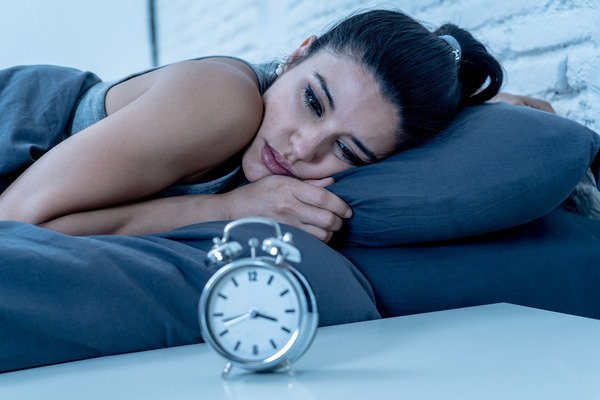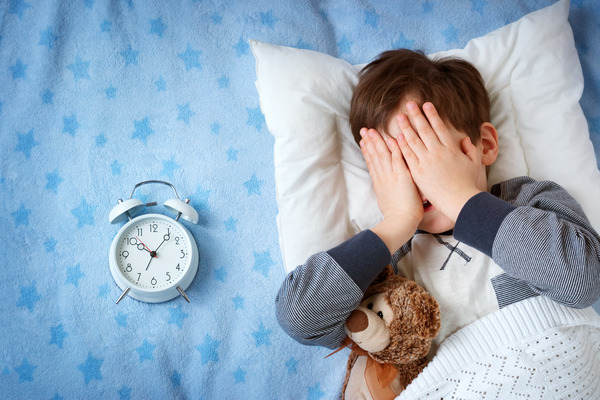Do you grind your teeth? Do you know what bruxism consists of? Bruxism can affect many areas of your life. Discover how to detect it, its consequences and how to defeat it completely.
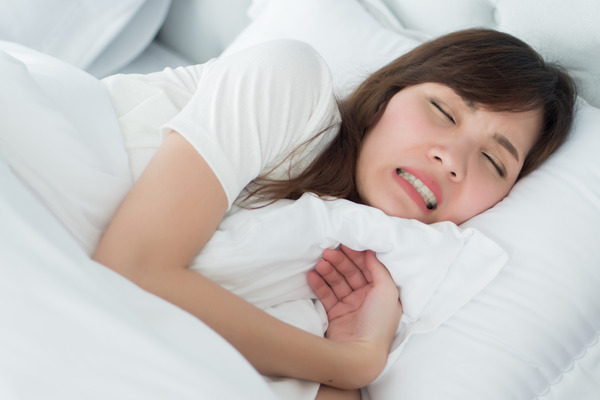
He bruxism or teeth clenching, also known as teeth grinding, can occur both during the day and at night. The most common is usually at night when we are asleep, for this reason it is difficult to control it. Bruxism appears unconsciously, causing us to clench our teeth or even move them, causing significant wear on the teeth due to the tension in the jaw that is suffered with this disorder.
What is bruxism?
He bruxism It is a nervous disorder in which we unconsciously clench and grind our upper and lower teeth. It is an involuntary movement that can occur both during the day and at night. In fact, it doesn’t have to happen at both times. Because it can occur during the night, it has even been categorized as a sleep disorder.
These involuntary movements activate the mandibular and cervical muscles, so their symptoms can go beyond tooth wear. In this way, burxism has both physical and psychological consequences. Therefore, it is vital to try to detect it sooner rather than later, especially if it is nocturnal bruxism Controlling teeth grinding is essential not only to stop suffering from insomnia as well as its other effects on our mental and physical health.
How do you know if you have bruxism? Symptoms of bruxism
Detect the bruxism and its symptoms It can be a little difficult if it happens at night. The key is to try to discuss it with loved ones who live with us or see if we really have the following effects.
- Tooth wear
- Tooth hypersensitivity
- Jaw and tooth (or even ear) pain
- Difficulty or pain opening your mouth or even chewing
- Headache and neck pain
- Migraine
- grinding teeth
These may be some of the signs that can push you to how to know if I have burxism if you’re wondering. In this way, this disorder can have other symptoms depending on the causes of where it comes from. This is so since tooth pain can be due to nerves or jaw tension due to anxiety, among other conditions. Therefore, in order to relax the jaw it will be essential to try to detect the reasons why bruxism occurs. In these cases, it may be vital to see a professional psychologist.
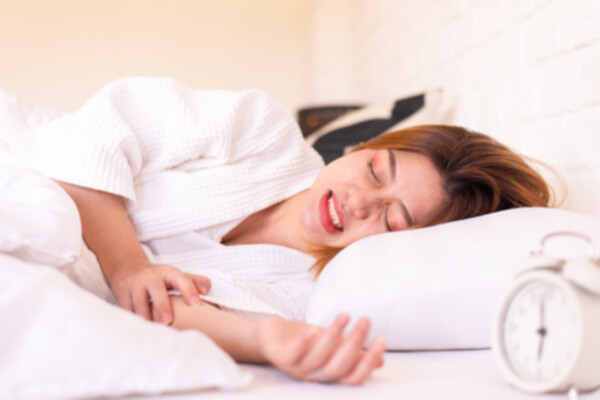
Bruxism and its consequences
He bruxism It affects our teeth and their wear, even causing problems in the jaw when chewing or causing pain. In addition to these symptoms, overload on the jaw as a result of clenching or grinding our teeth makes our mouth look swollen and painful, causing us to suffer from insomnia, headaches, earaches, and even neck pain. Our jaw is the strongest muscle in our body, so just as if we have a contracture in our cervical spine, we can have them in our jaw and we must treat it so that it does not happen very often. In many cases the contracture and the jaw are closely related.
Causes of bruxism
When we talk about something that arises from our unconscious, we can already imagine that it is a fact that comes from our mind, emotions and feelings, which we are surely repressing and not letting out. The most common causes that arise unconsciously:
- Repressed anger: On many occasions, clenching the jaw can come hand in hand with repressed anger due to our daily lives. So much so that clench your teeth It can be the cause of aggressiveness that we repress in various situations.
- Difficulty expressing what we feel: In some cases clench jaw It goes hand in hand with the inexpression of some feelings and emotions that we fail to communicate to others. In this way, clenching our teeth usually indicates a problem with the way we express ourselves to those around us.
- Sleep disorders: Different investigations have found that bruxism It usually has its origin in an existing sleep disorder such as snoring or other parasomnias related to the act of sleeping. Therefore, to avoid bruxism we should try to solve precisely these disorders that happen to us during the night.
- Lifestyle: On some occasions the teeth grinding indicates an unhealthy lifestyle. That is, people who resort to exciting drugs, such as tobacco, coffee or excessive alcohol consumption, can become one of the causes of bruxism. In these cases, to relax the jaw we must leave aside these types of substances.
- Stress and anxiety: The jaw tension due to anxiety and stress is more common than we can imagine. Therefore, the treatment of bruxism is usually related to relaxation or the treatment of these two psychological pathologies. In many cases, clenching the jaw due to anxiety or stress is very common. Furthermore, not only can it be caused by these two well-known conditions, but jaw and tooth pain can also go hand in hand with other personality disorders.
- Emotional tic: If we define a tic, a tic is the involuntary contraction of the muscles in a very intense way. This involuntary contraction can be due to many cases, in the case of bruxism and jaw clenching Therefore, it seems that the theory that has the most force is that of anxiety and stress. Even a social anxiety disorder can activate this type of tic. Therefore, we could say that bruxism It is an emotional tic, so tools such as relaxation, breathing, cognitive restructuring techniques and promoting a change in lifestyle can be very useful to reduce the anxiety and stress that may be behind bruxism.
- OCD (obsessive-compulsive disorder): There are those who have said that obsessive-compulsive personality or OCPD (which we should actually differentiate from OCD as such, but which share similar symptoms) may be behind bruxism. In fact, if we analyze both OCD and OCPD in more depth, in both we find that anxiety is common. In both disorders, urgency and control are present, so having everything under control and resolving things quickly can cause anxiety. In this case, treating the disorder will also help reduce the causes and consequences of bruxism
In this case, pharmacological treatment and cognitive-behavioral therapy is the treatment to deal with the disorder and anxiety. Techniques such as exposure and cognitive restructuring will help reduce bruxism. It is for this reason that we must take into account the help of psychologists for the bruxism treatment
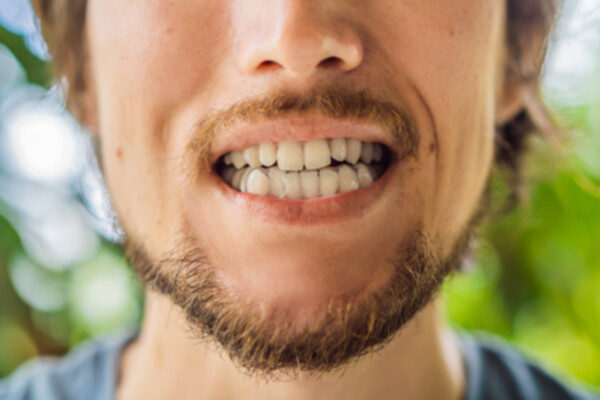
How to stop clenching your teeth due to bruxism?
To begin the treatment of bruxism, you must understand what emotional situation you are experiencing and look for ways to manage it that may be good for you, whether with relaxation, mindfulness or even releasing your tension with activities such as boxing. Each person is different and some techniques or others will work for them. But in the end, the most important thing is to go to the origin, understand what is causing you bruxism and because. It can be a multitude of things, both physical and psychological.
What you must understand is that there are different treatments such as unloading splint or prosthetic rehabilitation to address this problem, but the reality is that the only thing they will do is prevent wear on your teeth, they will not take away the tension. Controlling, reducing or eliminating this stress or muscle tension is in your hands, whether by performing muscle massages or doing exercises to release tension. However, the main thing you should treat is its origin, if you do not do it, all of the above will help you but you will continue to have tension in your jaw muscles and it can affect your daily life with severe headaches, muscle pain , contractures not only in your jaw but also in your cervical spine and even fatigue due to insomnia. Mainly, to know how to relax the jaw and leave bruxism behind we can follow the following instructions.
- Learn relaxation and meditation techniques: You must not avoid bruxism without knowing what is the cause behind this teeth grinding. But you can still use relaxation techniques to relieve bruxism and the headache related to it. Meditation is also effective in treating bruxism and its consequences.
- Manage stress: As we have seen, stress can be one of the most common causes of bruxism. In this way, a good treatment for bruxism consists mainly of treating the stress that we suffer in our daily lives. For reduce stress and avoid bruxism We can slow down our pace of life and try to lead a healthy lifestyle through exercise, diet and, above all, taking time to take care of ourselves.
- Change your behavior: In cases where bruxism and teeth clenching comes from repressed anger or aggressiveness, attempts should be made to alleviate the causes of this type of behavior. Analyze why you feel this way and put aside these types of attitudes derived from anger and aggressiveness.
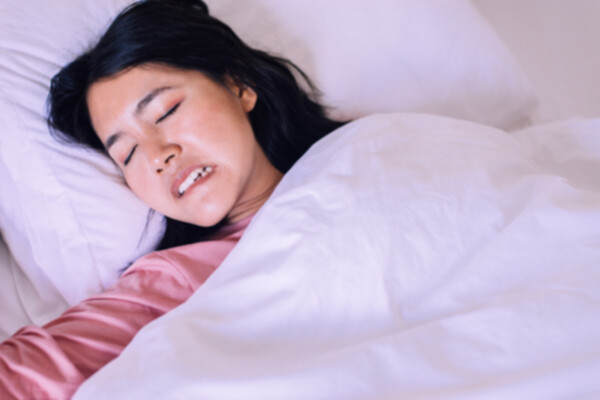
- Don’t drink caffeine and alcohol: Exciting drugs can produce nervousness that in some cases results in teeth grinding and jaw clenching Therefore, we can try to leave these types of attitudes behind by refusing these types of drinks that make us nervous.
- Practice good sleep hygiene: To try to leave behind the nocturnal bruxism and its symptoms We can resort to establishing certain sleep habits. Thanks to them you will have an effective solution to try to stop this tooth wear.
- Dental care: Dental care is vital to try stop bruxism and tooth wear Through the help of the dentist we can learn some techniques or exercises for bruxism to avoid mental wear and tear.
- Ask for help: Psychological help can be essential for burxism and its treatment In this way, psychologists are essential to try to find the origin of why we tend to clench our jaw.
He bruxism It is a disorder that is very unknown to the vast majority of the population. In this way, it is vital to recognize that we have a problem and try to see why it occurs. Our physical and mental health must be a priority to find happiness in every sense.

